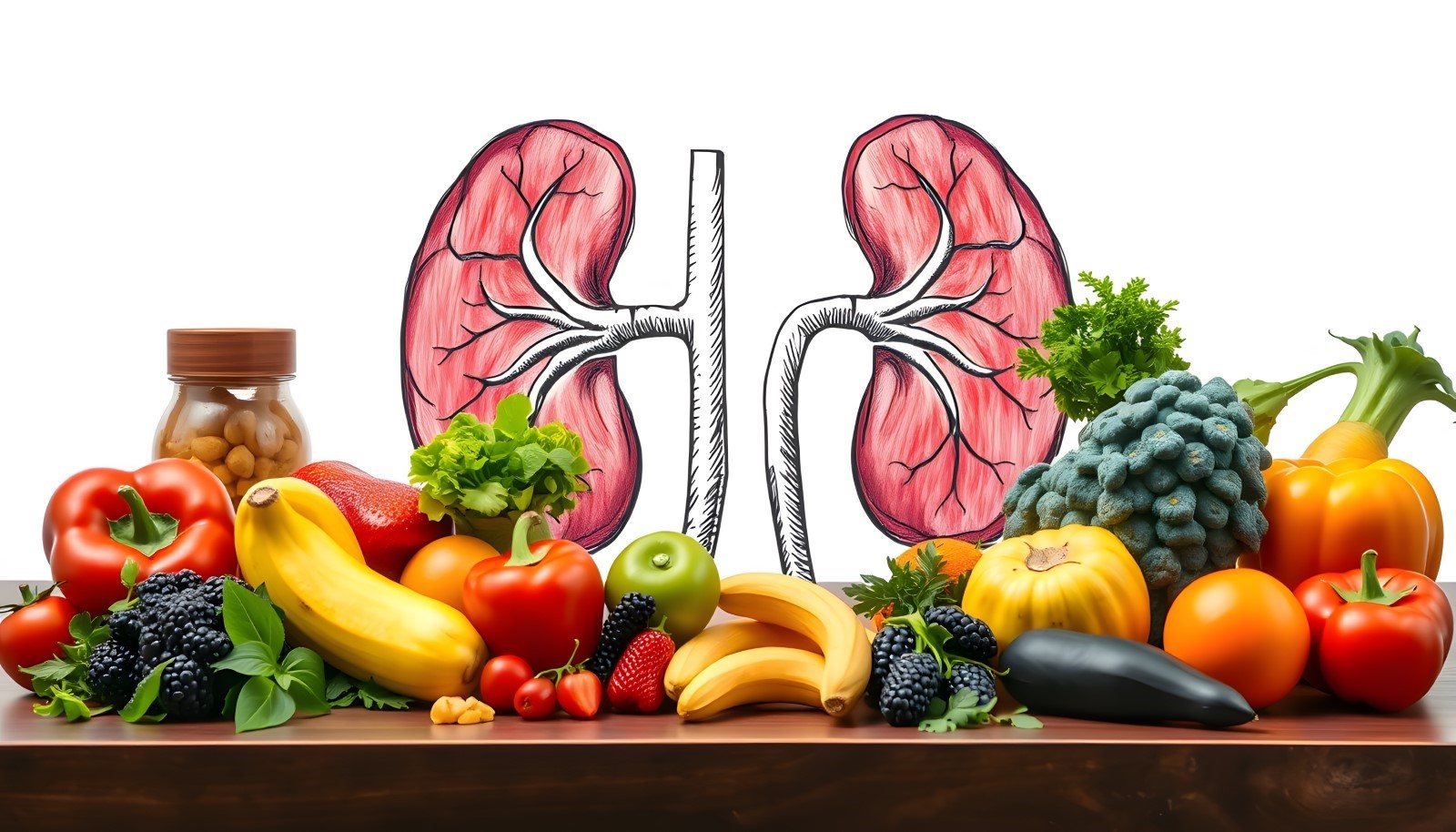Kidney stones are a common health concern, causing discomfort and pain. In India, their prevalence has been notably increasing, affecting people of varying ages. These tiny, hard deposits form in the kidneys and can cause significant issues if not managed properly. The purpose of this blog is to explore how diet can influence kidney health and reduce the risk of forming kidney stones. Understanding what you eat can play a crucial role in maintaining kidney function and preventing these painful stones from developing.
Understanding Kidney Stones and Their Risk Factors
Let’s first define what kidney stones are. These are solid crystals that form in the kidneys from substances in the urine. The major types include calcium stones, uric acid stones, and more. In India, calcium oxalate stones are most prevalent. Various factors contribute to their formation, including lifestyle and genetics. For instance, lack of physical activity, high-sodium diets, or a family history of kidney stones can increase the risk. By understanding these risk factors, individuals can take steps to alter their habits and reduce their chances of encountering kidney issues.
Dietary Influence on Kidney Stone Prevention
Certain foods can either help prevent or promote the formation of kidney stones. Foods high in calcium and oxalate are often culprits. However, dietary elements like citrate, found in citrus fruits, can prevent stone formation by binding with calcium. It’s essential to monitor what you eat, as a balanced diet can greatly impact kidney health. Avoiding high-sodium, high-sugar, and processed foods can help maintain optimal kidney function and stave off stone development.
Kidney-Friendly Foods to Incorporate into Your Diet
Incorporating the right foods into your diet is crucial. Calcium sources, such as yogurt, paneer, and leafy greens, help reduce stone risk. Fruits rich in citrate, like lemons, oranges, and Indian gooseberries, are beneficial. Managing fiber and oxalate intake with whole grains and lentils is also vital. Include snacks rich in magnesium and potassium like bananas, apricots, or coconut water. These foods provide necessary nutrients without increasing the likelihood of stone formation.
Accessible Seasonal Foods for Kidney Health in India
Eating seasonally can be beneficial for both your health and wallet. Consider locally available, cost-effective foods across different seasons:
- Summer: Cucumbers and watermelons.
- Winter: Spinach and carrots.
- Monsoon: Cabbage and bottle gourd.
These foods not only support kidney function but are also easy on your budget, making them a viable dietary choice year-round.
Practical Meal Planning for a Kidney-Friendly Diet
Having a plan makes it easier to maintain a kidney-friendly diet. You can start your day with a glass of coconut water, followed by breakfast with oatmeal topped with bananas. A lunch of palak paneer with whole-grain roti can provide essential nutrients. Opt for a dinner of dal with steamed vegetables and brown rice. Avoid excessive salty snacks and instead munch on nuts occasionally. Preparing meals ahead of time and having alternatives to common kidney-stone-promoting foods can be helpful.
Debunking Kidney Stone and Diet Myths
Let’s address some common myths. Many people believe that high calcium intake directly causes kidney stones; however, moderation is key. Calcium from plant sources is healthy. Another misconception is avoiding all spices for fear of stone formation. Most Indian spices are safe in moderate amounts and can still be part of a healthy diet. It’s always a good idea to understand which foods help and which might hurt your kidneys.
The Importance of Hydration
Staying hydrated is crucial in preventing kidney stones. Hydration helps dilute urine, making it less likely for stones to form. Traditional drinks like buttermilk or nimbu paani are refreshing hydration choices. Aim to drink plenty of fluids daily, ideally water, alongside these beverages to keep the kidneys healthy.
Interpreting Recent Dietary Research on Kidney Stones
Recent studies have brought forward interesting findings on how diet affects kidney stone formation. While it’s easy to get lost in complex scientific terms, the takeaway is simple: a diet rich in fruits and vegetables while low in saline and sugary foods can help prevent stone formation. Readers should focus on balanced meals to mitigate their health risks.
Enhancing Kidney Health with Antioxidants and Nutrients in Indian Cuisine
Indian cuisine is rich in antioxidants, which are vital for kidney health. Foods like amla, tomatoes, and bell peppers are excellent sources. Dishes that incorporate these naturally, such as amla chutney or tomato curry, provide antioxidants that aid kidney function and reduce stone risk.
Dietary Guide for Vegetarians and Vegans to Prevent Kidney Stones
For vegetarians and vegans, plant-based protein sources like beans and lentils are ideal. Almond or soy milk can serve as excellent calcium alternatives to dairy. Ensuring a balanced, plant-based diet can support kidney health without increasing stone risks.
Conclusion: Achieving Kidney Health Through Diet
To sum up, choosing the right foods helps in reducing the risk of kidney stones. Incorporating a variety of fruits, vegetables, and fluids maintains healthy kidney function. It’s helpful to reassess current eating habits, aiming for a balanced diet rich in essential vitamins and minerals. Always consider consulting a healthcare professional for personalized advice, ensuring that your diet supports not just kidney health, but overall well-being as well.
